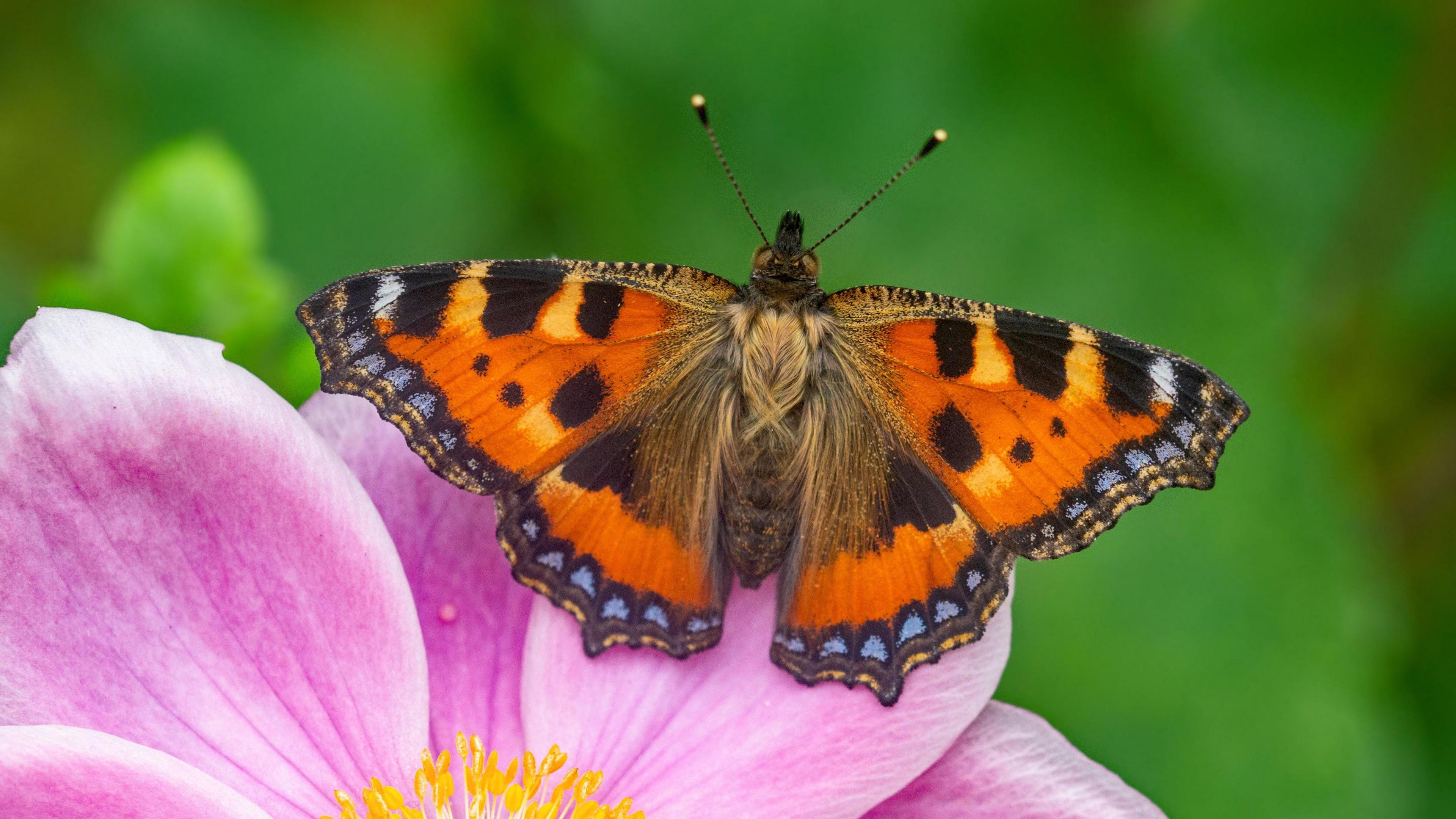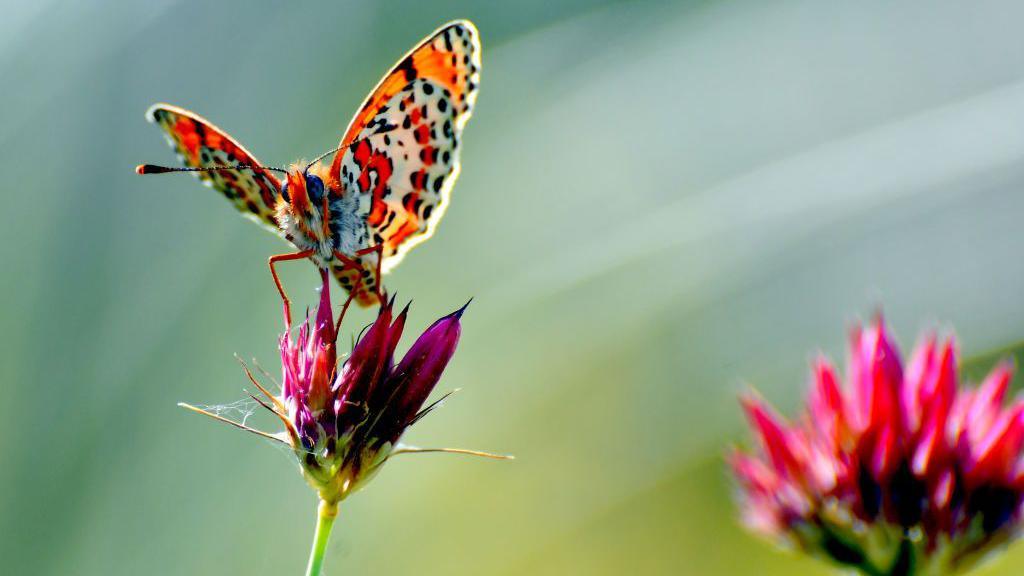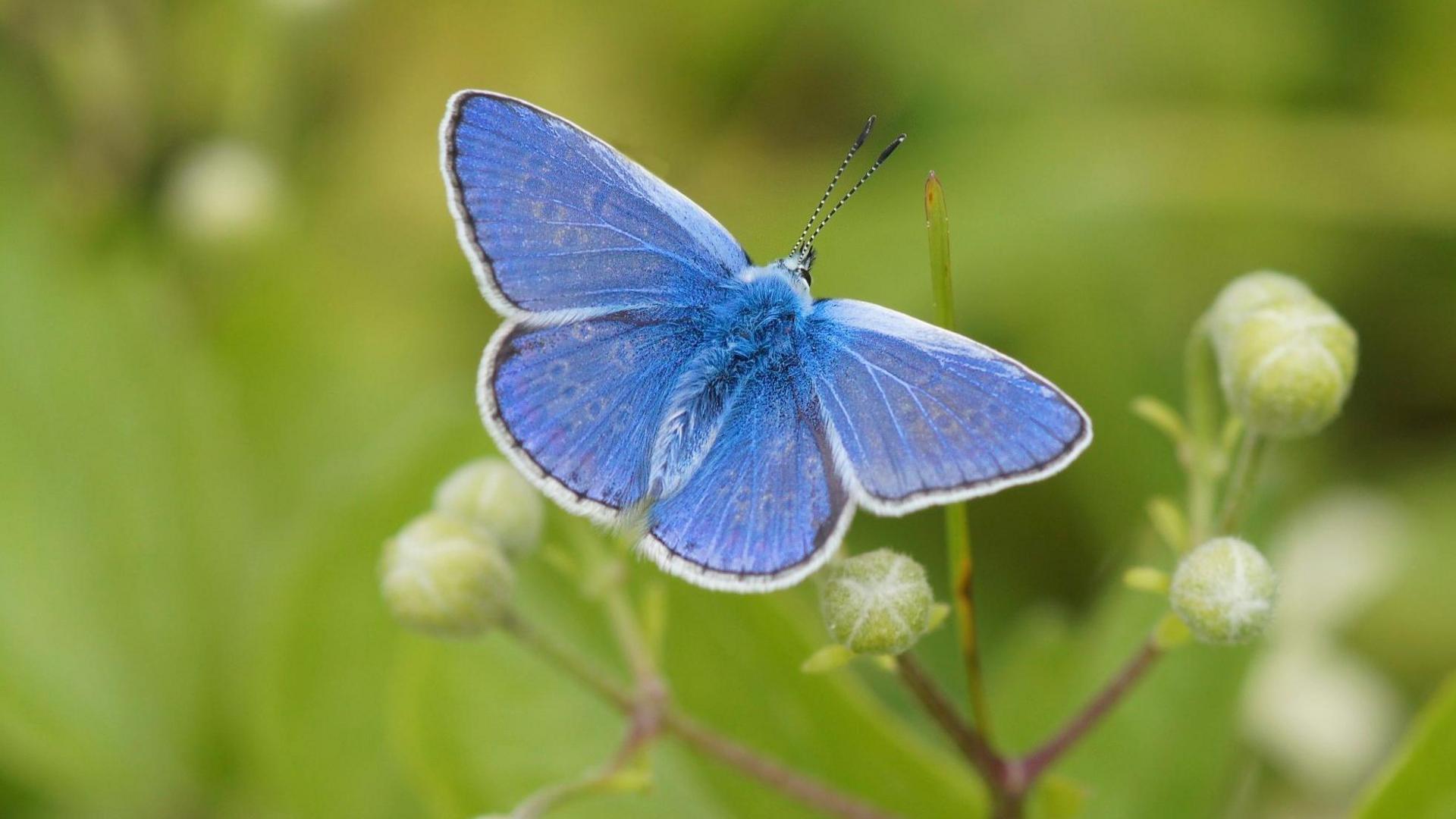Lowest number of butterflies ever recorded at Big Butterfly Count

The Small Tortoiseshell butterfly has had a bad year
- Published
A butterfly conservation charity has declared a national butterfly emergency after fewer winged insects than ever were spotted in its annual count this summer.
The Big Butterfly Count is a nature survey organised by the wildlife charity Butterfly Conservation that takes place in the UK each year.
It involves volunteers spending 15 minutes outdoors to count how many butterflies they see, and what they look like, to help give the charity a better picture of how butterflies are doing on the UK.
The results of this year's Big Butterfly Count saw the lowest number spotted in the survey's 14-year history, with more than 9,000 reports not seeing a single butterfly.
Butterfly Conservation has called on the government to declare an emergency after publishing their findings.
They've written a letter to the Department for Environment, Food and Rural Affairs (DEFRA) asking them to ban pesticides.
These are chemicals used to help plants grow, but some can be harmful to wildlife.
How hairy hogs are helping boost butterfly numbers
- Published12 June 2024
Butterfly art made by school kids displayed at Cambridge museum
- Published24 May 2024
What has the government said?
DEFRA is the government's team that looks at nature, as well as farming, food and fishing.
They told Newsround they have plans to tackle the problems facing butterflies: “Nature underpins everything and we must protect our butterflies and other pollinators.
“That is why we are committed to deliver for nature and will change existing policies, including banning the use of those neonicotinoid pesticides that threaten vital pollinators.”

Butterflies help spread seeds from different plants and flowers
Butterfly Conservation told Newsround it welcomed Defra's commitment to ban harmful pesticides, but were concerned at the lack of "timescale for action".
It continued: "The government needs to act with the urgency that the nature emergency requires. We need an outright ban on all butterfly-killing neonicotinoids, immediately, with no exemptions.
"The time for promises has gone, and the time to act for nature is now."
Why are the results so bad this year?

The common blue butterfly has had one of the worst summers on record for the count
Just over 935,000 butterflies and day-flying moths were recorded across the UK during the survey this year during 12 July - 4 August.
The charity says that's around 600,000 less than were recorded in 2023.
And 9000 counters recorded seeing no butterflies at all.
The results have alarmed scientists and caused the charity to declare a ‘Butterfly Emergency’ to try to help them.
Dr Richard Fox, Head of Science at Butterfly Conservation, said: “a third of the species recorded in the Big Butterfly Count have had their worst year on record, and no species had their best. The results are in line with wider evidence that the summer of 2024 has been very poor for butterflies."
Why are butterflies important?
Some UK butterfly populations are declining - Shanequa's gone to find out why
Butterflies and moths are a very important part of our ecosystem.
They help to pollinate flowers and plants, and help to control pests, as well as providing food for other animals like birds and bats.
“Butterflies are a key indicator species; when they are in trouble, we know that the wider environment is in trouble too." said Dr Fox.
The UK has 59 species of butterflies, and over the last 150 years, five species have become extinct.
